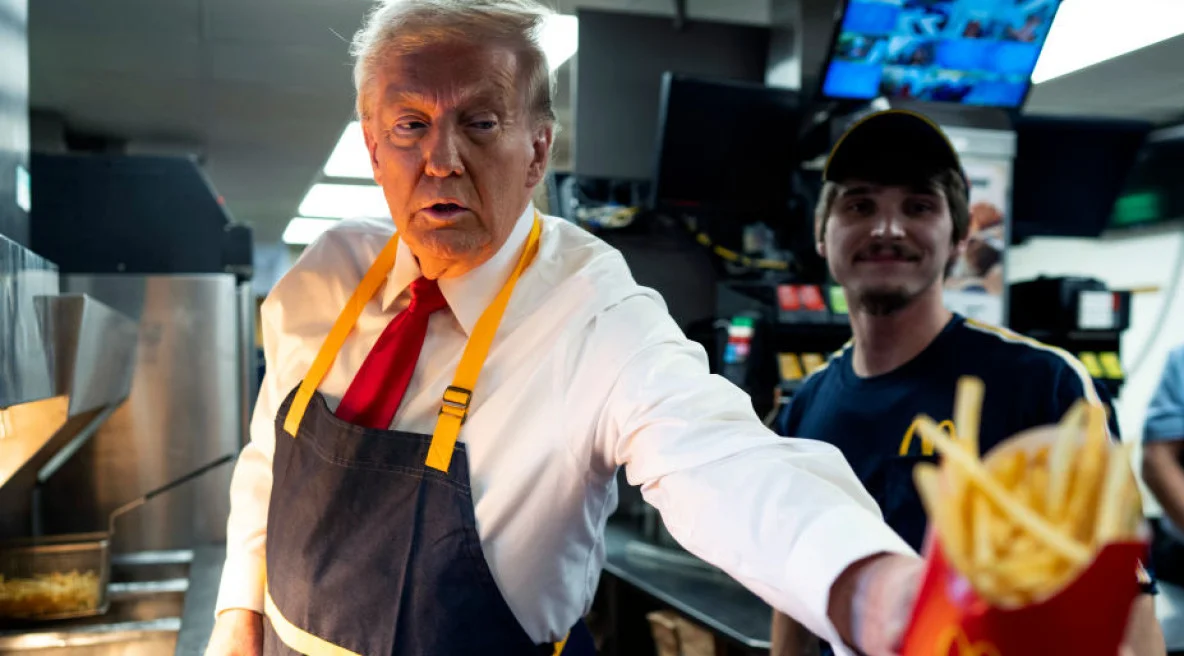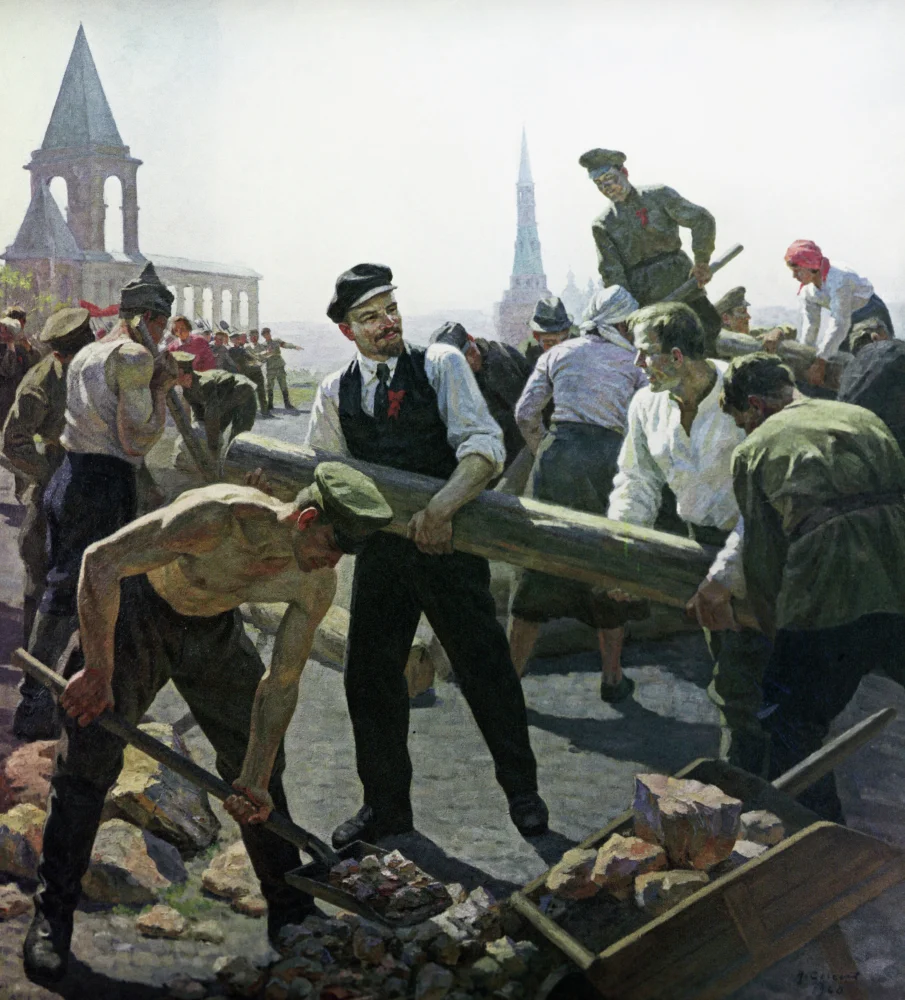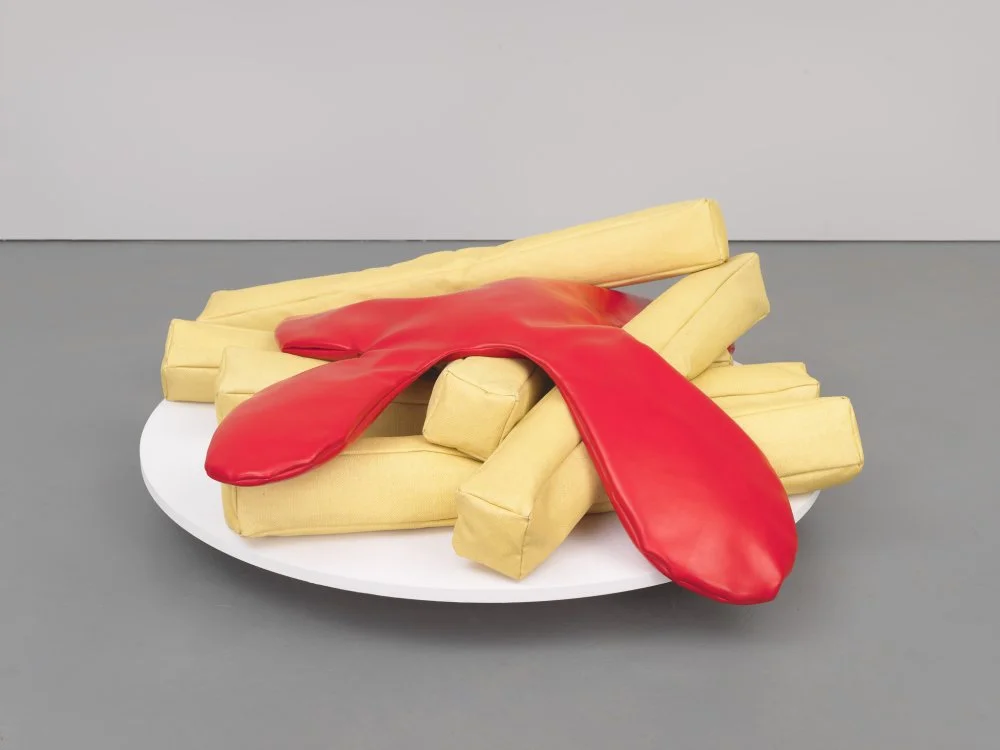Word of the month: fries
Donald Trump’s Potato Blitzkrieg

Donald Trump works behind the counter during a campaign event at McDonald's restaurant on October 20, 2024 in Feasterville-Trevose, Pennsylvania. /Doug Mills-Pool/Getty Images
Since the beginning of language and human society, words have had the power to shape our world. To explore the reaches of this ability, each month, Qalam dives into a new word that unlocks a deeper understanding of our lives. The word this month is ‘fries’.
After Donald Trump stepped behind the counter at a Pennsylvania McDonald's at the end of October and personally made several servings of fries, the company sent a message to its employees stating that it does not endorse any candidate for the US presidential election. But it was already too late: Trump, it seems, won the fast-food battle against Harris, even though this stunt, like all his others, was labeled disgraceful by the Democratic media. The most telling headline was in the Los Angeles Times: 'From penis size to French fries'. Incidentally, this publication recently also declared its political neutrality—a significant move in light of being the biggest newspaper in Kamala Harris's home state.
An unconventional politician, Trump has a knack for crafting a clear system of signals and images that resonate, and he especially easily navigates the world of kitsch. Since he’s already associated with all forms of toxicity, the 'unhealthy' French fries only added consistency, so to speak, to his brand.
On the one hand, fries are quite the American ‘staple’. Besides their unhealthy mass appeal, they have a substantial historical background. Let us for a moment recall President Thomas Jefferson, who is said to have been the first to introduce this dish to Americans, and the Irish Potato Famine of the 1840s, which drove around 2 million Irish immigrants to the North American continent. These immigrants played a significant role in building the nation and, by 1850, made up a quarter of the population in cities like New York and Boston.
Trump’s cheap, sentimental stunt plays well as a populist gesture (though the ‘folksiness’ is conditional—Trump’s style would have him frying potatoes in a golden fryer). Yet, Trump in an apron looks almost like Lenin with a log at the Kremlin volunteer clean-up in 1920, ‘laboring’ to connect with the people. This comparison seems quite ironic when you think about Lenin making an appearance, no matter how oblique, in the seemingly endless list of accusations against Trump. The prominent Bulgarian political scientist Ivan Krastev argued that Trump won the 2016 election only because Russia intervened in American politics to disrupt it, supporting Trump in much the same way as Kaiser Germany, eager for the fall of Tsarist Russia, had supported Lenin.

Nikolai Alexandrovich Sysoev. V.I. Lenin at a subbotnik in the Kremlin. Reproduction. Oil/RIA Novosti
Yet, this isn’t about democracy in food choices. Slavoj Žižek was, it seems, the first to note that Trump is a truly postmodern president, though you don’t need to be a seasoned philosopher to reach such an obvious conclusion. Building on this idea, Trump’s actions could be seen as both populism and pop art. Just look at his scarlet tie that matches perfectly with the red hue of the fry wrapper brimming with toxic-yellow potatoes. There's such commercial spectacle and excess in this whole scene that Andy Warhol, who famously dubbed McDonald's the most beautiful place on the planet, would have decisively hanged himself for such an image. Warhol himself never painted fries, though another pop art icon, Claes Oldenburg, has a relevant sculpture.

Claes Oldenburg. French Fries and Ketchup. 1963/Whitney Museum of American Art
And Trump, in turn, is quite the mascot, showman, and clown—he is basically Ronald McDonald. Pop artists have enjoyed playing with scale and exposing technique; they’ve loved specificity, collage rhetoric, wild coloring, and the kitsch cult of public fame. All of this is thoroughly characteristic of the current potato-wielding presidential candidate. By contrast, in 2019, Kamala Harris hosted a YouTube cooking show where she showcased tuna sandwiches, apples fried with bacon, and other dishes, arguably more flavorful and even possessing a hint of multicultural flair, yet hardly living up to the emblematic dogma of the red fry container.
But in just another week more of experiments in this political kitchen, we'll find out whether we're in for a monster cookie (another Harris signature dish) at the highest level or if something more like a Warholian tomato soup can will triumph.



